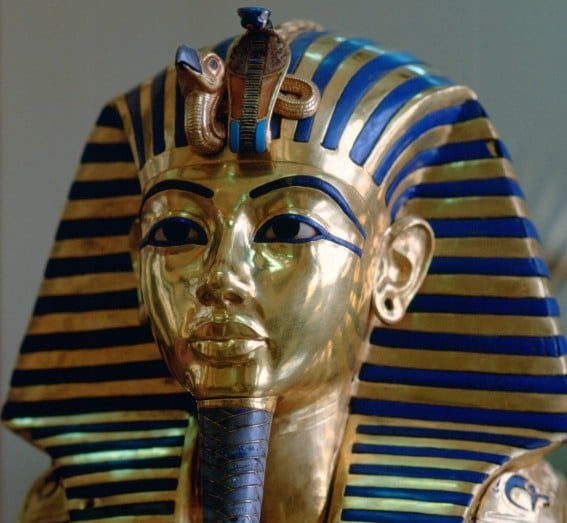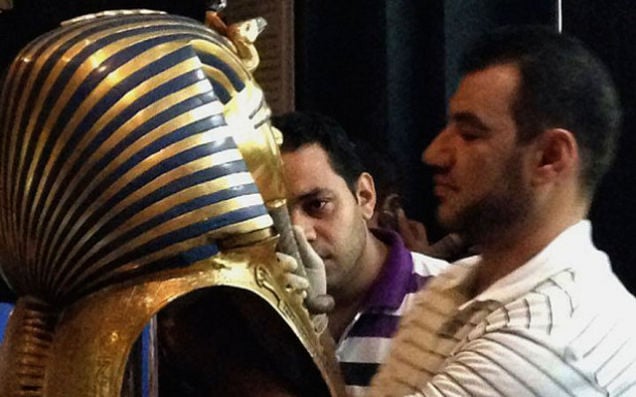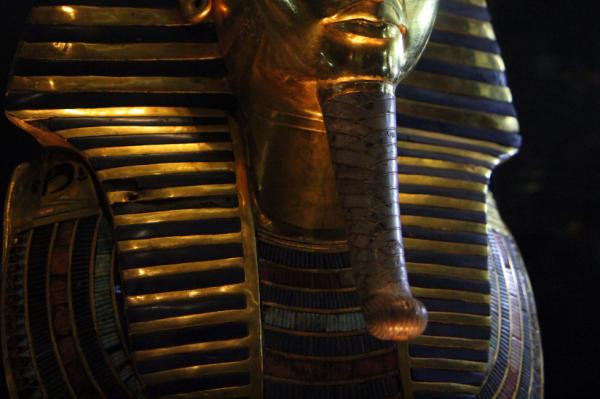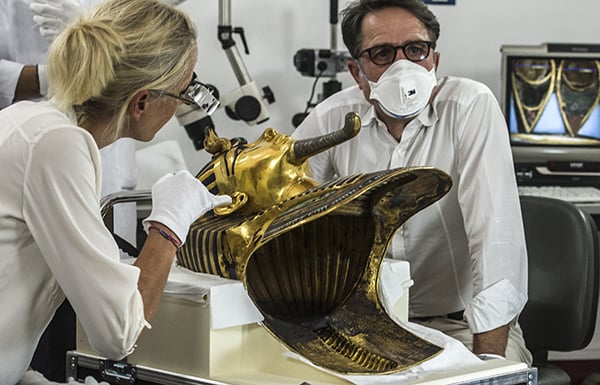Art World
Egyptian Museum Staff Faces Disciplinary Hearing Over ‘Reckless’ Handling of King Tut’s Mask
The prosecution cites the staff's "gross negligence."

The prosecution cites the staff's "gross negligence."

Sarah Cascone

Those responsible for the embarrassing restoration of King Tut‘s 3,300-year-old funerary mask will be the subject of an emergency disciplinary tribunal, reports Agence-France Presse.
The former director and chief of restoration of Cairo’s Egyptian Museum are among those implicated in damaging the ancient treasure, which archaeologist Howard Carter discovered in 1922.

The restoration crew is seen gluing King Tut’s beard back on at the Egyptian Museum in Cairo on August 12th, 2014.
Photo: Jacqueline Rodriguez, courtesy the AP.
When the museum tried to clean the mask in August 2014, the beard fell off. It was reapplied with epoxy glue, leaving a visible layer of adhesive on the priceless artifact. The staff’s initial attempts to remove the glue allegedly caused additional damage.
Mohamed Samir, spokesman for the administrative prosecution, told AFP that there had been “gross negligence and blatant violation of scientific and professional” rules for archaeological artifacts, and that museum employees had “handled the mask with extreme recklessness.”

The funerary mask of King Tut after it was damaged by the botched restoration. Photo: Hasan Mohamed/AFP/Getty Images.
“Accidents happen in all museums, and this I would simply call an accident,” archaeologist Nicholas Reeves told artnet News of the incident at a tour of “The Discovery of King Tut,” an exhibition currently on view in New York. Reeves is the man behind the increasingly-convincing theory that King Tut’s tomb is a mere antechamber to a larger tomb that was the eternal resting place of Queen Nefertiti.

German specialists in Christian Eckmann (R) and Katja Broschat (L), work to restore the golden mask of Tutankhamun after it was damaged in botched repair job. Photo: Khaled Desouki/AFP/Getty Images.
Accident or not, eight employees have been removed from their jobs, pending the outcome of the investigation. Last January, restoration chief lham Abdel Rahman was transferred to the Royal Coaches Museum in Cairo’s Bulaq neighborhood. The hearing will also decide the fate of four restoration experts, the museum’s former director, and two other workers.
Fortunately, German conservator Christian Eckman was able to restore the ancient artifact, carefully warming it to remove the poorly applied glue. After two months of work, the mask was reinstalled last December at the Egyptian Museum with just a few minor scratches.